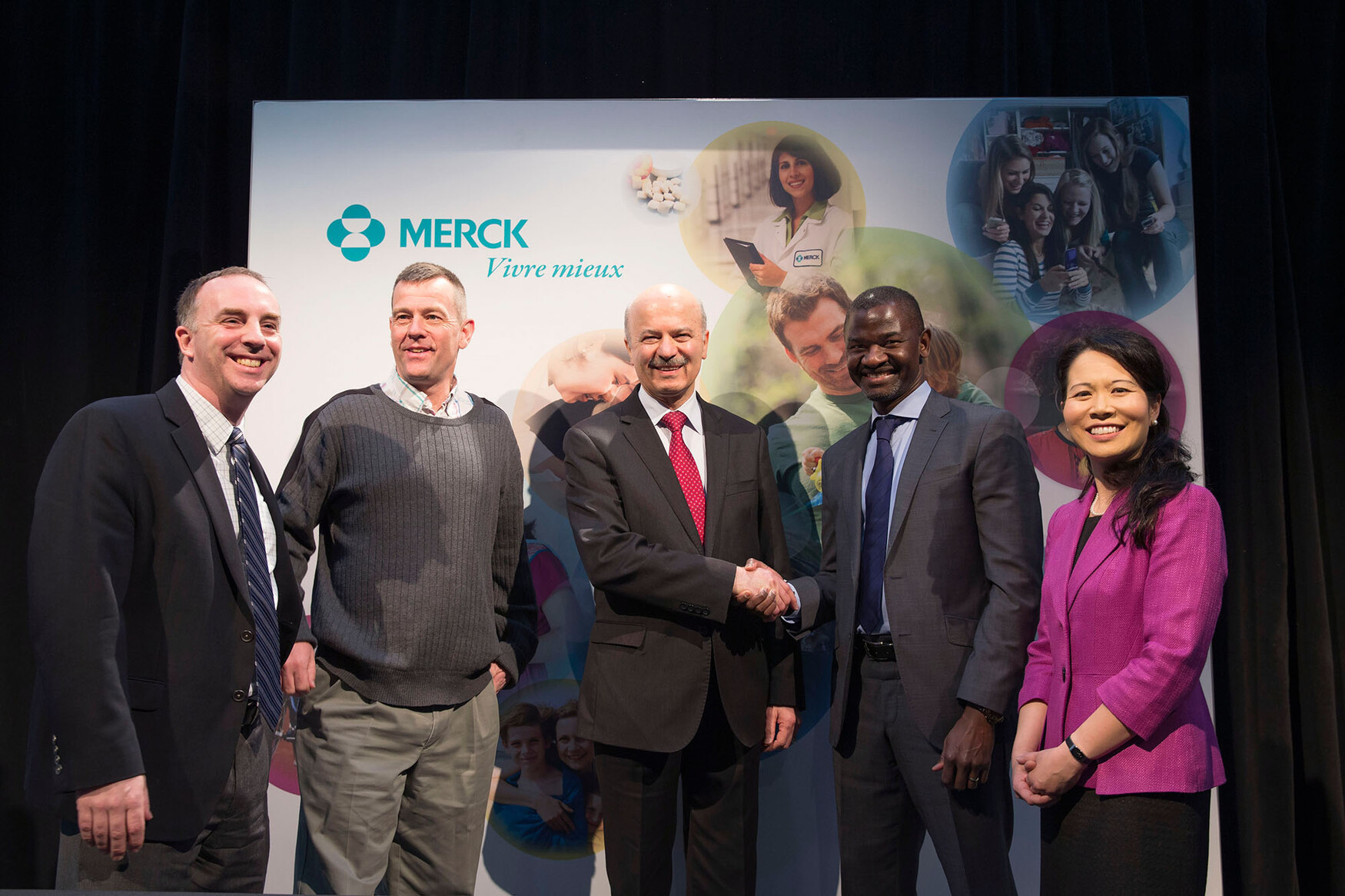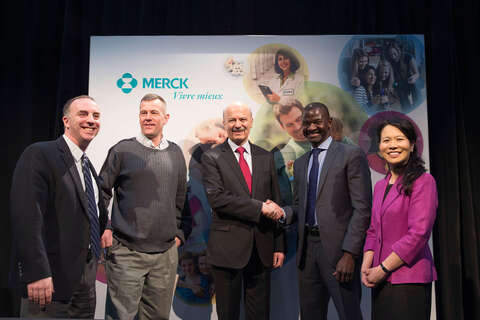Mobile Menu
- Education
- Research
-
Students
- High School Outreach
- Undergraduate & Beyond: Community of Support
- Current Students
- Faculty & Staff
- Alumni
- News & Events
- Giving
- About


Global healthcare leader Merck has joined the Structural Genomics Consortium (SGC) at the University of Toronto with a $7.5 million contribution. The SGC is a public-private partnership that supports the discovery of new medicines through open access research. Merck’s contribution will fund the development of new chemical probes to study genetic traits. The probes will expand the understanding of biology in multiple disease areas, particularly cancer and inflammatory diseases.
"I would like to thank Merck Canada and to congratulate all of the partners in the Structural Genomics Consortium. In particular I salute Professor Aled Edwards, the SGC's founder and current CEO, for his absolutely brilliant leadership. Professor Edwards and his colleagues are showing that it really is possible to make a difference — even in matters of greatest complexity and highest urgency — when we work together for the common good," said Professor Meric Gertler, President of the University of Toronto.
SGC’s track record for delivering high-quality science, along with Toronto’s ecosystem of world-class hospitals and research labs, attracted Merck’s support.
“Merck is very pleased to be able to encourage innovation and research across an established SGC collaborative network of more than 250 academic laboratories at leading institutions,” said Chirfi Guindo, President and Managing Director, Merck Canada Inc.
The contribution was applauded by the Honourable Reza Moridi, Ontario Minister of Research and Innovation, who attended the announcement.
“This donation will contribute to the ‘open-sourced’ information available for the public and private sectors and lead to new innovative technologies and medications,” Moridi said. “Ontario recognizes that in a highly competitive global economy, collaborations like this are critical to propel Ontario forward as a world leader in life sciences.”
The SGC’s mission, Edwards explained, is to make all of its research output available to the scientific community with no strings attached and to create an open collaborative network to advance science.
“At the heart of our partnership is a commitment to transparency and quality. We’d like to thank the Ontario government for supporting the ecosystem that enables our project, and also to thank our scientific collaborators in Merck and in the Ontario hospitals who share the commitment to open science,” said Edwards.

